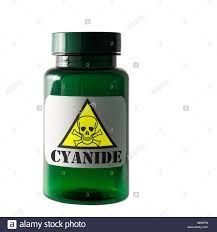
|
@vampboy | |
|
I am doing an interesting topic on Evidence law and there are some very controversial areas within the field that I'd like to hear your opinion on. Should prior convictions act as admissible evidence for prosecution to adduce against a defendant? What if it wasn't a criminal offence, but rather just a reprehensible act that is condemned by society; surely that could be bad character evidence. Do you think judges should allow such admission? |
||
|
24
Replies
2337
Views
0 Favourites
|
||
Page #: 1/2 |

|
@gt_tdi | 17 November 20 |
|
Do your own homework, Shirley.
|
||

|
@vampboy | 17 November 20 |
|
Wrong case. Edited.
|
||

|
@vampboy | 17 November 20 |
|
So here are two interesting cases to illustrate how the courts would allow evidence of bad character in the courtroom. In the case of R V Smith; literally called the Brides in bath case, you had a man who was already married yet bigamously marries another person. He manages to convince his first wife to make him the beneficiary in the will then while they were on holiday somewhere, she mysteriously drowned in the bath tub. Ruled as being an incident of epilepsy. Here's the interesting part; there was actually evidence of two of his previous brides who died under similar circumstances! but bringing that in the court would be bringing evidence of the person's bad character, but the court actually admitted that evidence and he was later convicted. |
||

|
@vampboy | 17 November 20 |
|
Contrast this case with the case of R v Noor Mohd. Another eerie case revolving around a man charged for murder of his wife from cyanide poisoning. There was later evidence found that his ex wife also died from similar circumstances, yet the court did not admit this evidence citing that there wasn't any that he actually poisoned his wife. So which of these two cases do you think took the rational decision? We now have the criminal justice act 2003 that regulates the issues of bad characters; wherein judge made law is effectively abolished for bad character evidence, so what you say if you were the judge? To what degree should prior convictions be admissible evidence? Do note that I am not disputing the use of prior offences during commencement of sentencing, I am talking about evidence being accepted in the court in first place, |
||

|
@vampboy | 17 November 20 |
|
@ gt_tdi - 17.11.20 - 02:38pm Do your own homework, Shirley. I would get a ZERO if you helped me on my homework. |
||

|
@gt_tdi | 17 November 20 |
|
@ vampboy - 17.11.20 - 02:54pm I would get a ZERO if you helped me on my homework. Well that's clearly not true, is it? 
|
||

|
@piggle | 17 November 20 |
|
Should be selectively disclosed information
|
||

|
@vampboy | 17 November 20 |
|
On a by the way note; here's another case concerning the murder of a girl by an escaped patient from Broadmoor. The dead body of the victim was found unconcealed in the vicinity of Broadmoor. The murder essentially took place between the time of escape to time of capture. Good circumstantial evidence perhaps. He confessed to seeing the girl, but denied murdering her. The interesting part here is that he had previously admitted to murdering two girls in a similar fashion; murder without evidence of sexual assault. But that would mean using previous commission of offences as evidence to convict the person now. The court actually admitted that evidence citing that previous conviction was proof of the killer's identity. |
||

|
@vampboy | 17 November 20 |
|
@ gt_tdi - 17.11.20 - 02:58pm Well that's clearly not true, is it?  It is 1000000 per cent true. You are the worse teacher ever. |
||

|
@vampboy | 17 November 20 |
|
@ piggle - 17.11.20 - 02:58pm Should be selectively disclosed information Fair point, but as you can see the law before the enactment of statue gave judges quite a lot of leeway to decide which should be selected and which shouldn't. Don't you think it would jeopardise fair trial hearing for the accused? You're more likely to be convicted of a new offence if the jury gets directed by the judge for your previous convictions. |
||

|
@kimjongl | 17 November 20 |
|
I think each case should be judged on it's own merits with evidence pertaining only to the charges at hand being admitted. Admitting prior character evidence or disclosing previous incidents that haven't been tested in a court is the equivalent of admitting heresay. It's for the same reason I don't buy the argument of releasing an accused person's name in order to get more people to come forward or to gather more evidence. If your case didn't have enough to convict in the first place then the person should have never been brought to trial. You conclude your investigation before trial and open up a new one in order to get more people to come forward if you get the first conviction. That's when you release the name. |
||

|
@obi_jon | 17 November 20 |
|
@ vampboy - 17.11.20 - 03:03pm It is 1000000 per cent true. You are the worse teacher ever. That's plainly not true, your Maths and English teachers were definitely worse. |
||

|
@gt_tdi | 17 November 20 |
|
@ vampboy - 17.11.20 - 03:03pm It is 1000000 per cent true. You are the worse teacher ever. Because I'm overly friendly? Some people like that in their teachers. Rude. |
||

|
@vampboy | 17 November 20 |
|
@ kimjongl - 17.11.20 - 03:36pm I think each case should be judged on it's own merits with evidence pertaining only to the charges at hand being admitted. Admitting prior character evidence or disclosing previous incidents that haven't been tested in a court is the equivalent of admitting heresay. It's for the same reason I don't buy the argument of releasing an accused person's name in order to get more people to come forward or to gather more evidence. If your case didn't have enough to convict in the first place then the person should have never been brought to trial. You conclude your investigation before trial and open up a new one in order to get more people to come forward if you get the first conviction. That's when you release the name. Admitting prior character evidence or disclosing previous incidents that haven't been tested in a court is the equivalent of admitting heresay. Exactly! but what's funny is that the law actually does allow hearsay in certain situations, especially when the purpose of such evidence is to explain the context of the events that happened rather than to establish the truth of what is contained in the statement. Character evidence likewise is allowed in circumstances when it is an important explanatory evidence or when it's substantial prohibative value outweights any potential prejudicial effects it can create for the defendent. Both of the type of evidences leave quite a bit of loophole, if you catch my drift. But having said that; there's an interesting case I'd like you to look at. |
||

|
@vampboy | 17 November 20 |
|
Here it is. I made some pointers over the case; but have a look; the naked photos of boys found in the defendent's computer prior to the new case was clearly evidence of bad character. If you say all cases should be judged by their own merits, then where does it leave cases with similar facts such as this? |
||

|
@tazdevil | 17 November 20 |
|
@ vampboy - 17.11.20 - 02:35pm I am doing an interesting topic on Evidence law and there are some very controversial areas within the field that I'd like to hear your opinion on. Should prior convictions act as admissible evidence for prosecution to adduce against a defendant? What if it wasn't a criminal offence, but rather just a reprehensible act that is condemned by society; surely that could be bad character evidence. Do you think judges should allow such admission? Not sure if my common sense approach will help, but if it's a reprehensible act that is condemned by the society - something should be done, right? I think it depends on the question 'how serious it is' in order to decide whether or not to take the prior convictions/character evidence into account. |
||

|
@kimjongl | 18 November 20 |
|
@ vampboy - 17.11.20 - 07:24pm Here it is. I made some pointers over the case; but have a look; the naked photos of boys found in the defendent's computer prior to the new case was clearly evidence of bad character. If you say all cases should be judged by their own merits, then where does it leave cases with similar facts such as this? The photos aren't just character evidence, they're evidence of a crime if those boys were under age. The powder puff is circumstantial unless it's been tested and verified for DNA. The rest is a chain of events the prosecution is alleging in their bringing of the case. This case seems to have enough evidence to examine without needing to go into character. |
||

|
@eyesore | 18 November 20 |
|
I think I've just stumbled into a law class
|
||

|
@birdy | 18 November 20 |
|
If it's fact, and it can add to circumstantial evidence in a murder or something as serious, then yeah.
|
||

|
@birdy | 18 November 20 |
|
I had to read that like 5 times, and I still don't know if i answered it right lol
|
||

 You are not logged in to Prodigits. Please
You are not logged in to Prodigits. Please 





